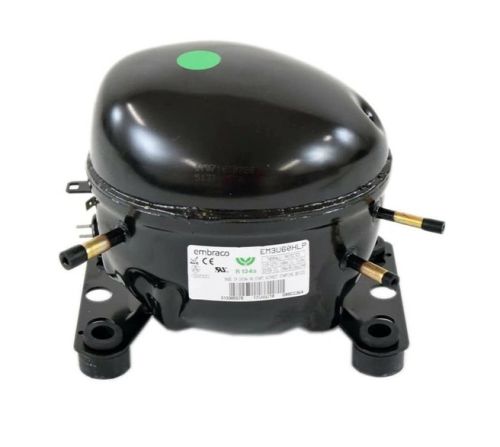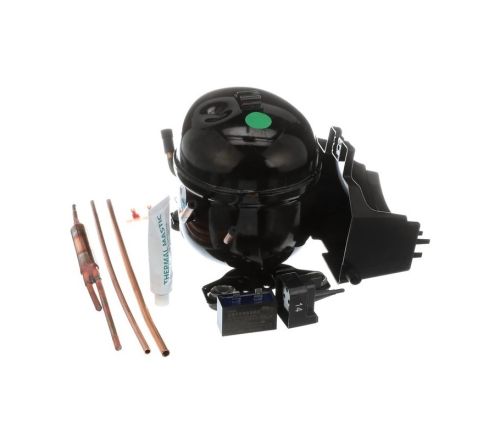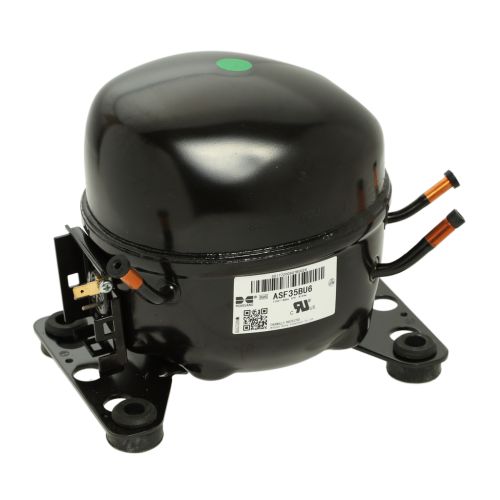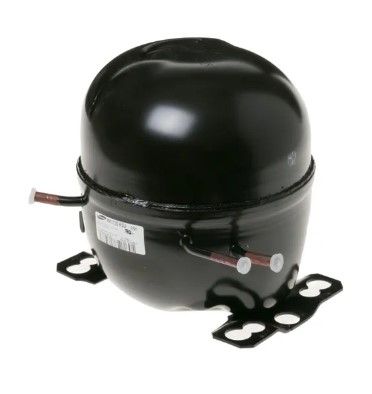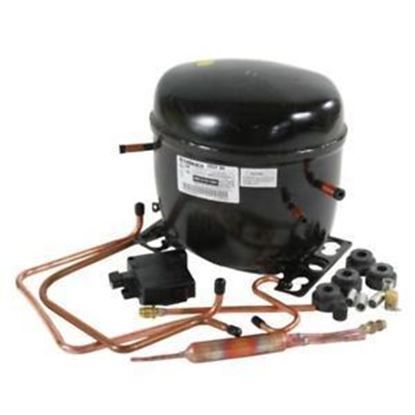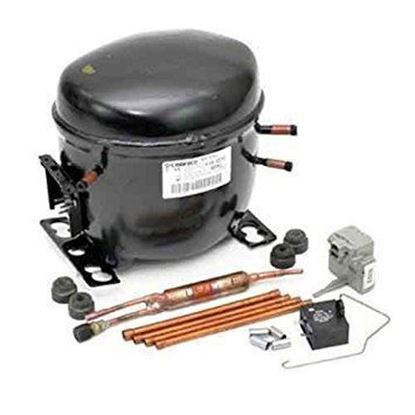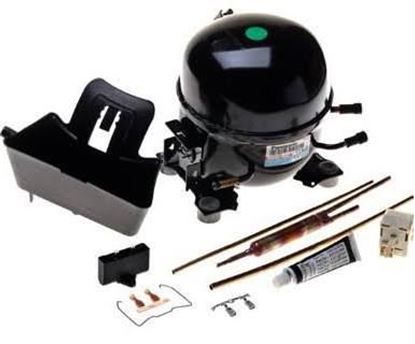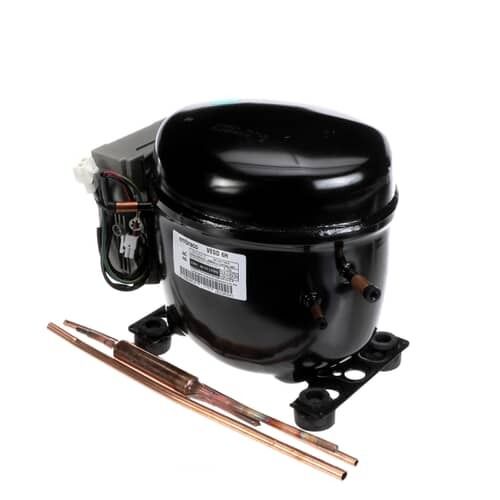
How to Replace a Faulty Refrigerator Compressor: Easy & Quick Fix
In-home appliance maintenance, and understanding how to replace a refrigerator compressor is a valuable skill. A malfunctioning compressor can jeopardize the efficiency of your refrigerator, leading to potential food spoilage and increased energy consumption. This article will guide you through the step-by-step process of replacing a refrigerator compressor, empowering you to tackle this essential repair with confidence.
From identifying symptoms of compressor issues to the tools required and the precise replacement procedure, this Fridge compressor replacement guide aims to simplify the daunting task of maintaining your refrigerator's optimal functionality.
How does a refrigerator compressor work?
A refrigerator compressor operates as the heart of the cooling system, playing a crucial role in maintaining the desired temperature within the appliance. Functioning on the principles of thermodynamics, the compressor compresses low-pressure, low-temperature refrigerant gas, transforming it into a high-pressure, high-temperature state. As this heated gas travels through the condenser coils, it releases heat into the surrounding air, causing the gas to condense into a high-pressure liquid. The liquid then flows through the expansion valve, reducing pressure and temperature. This cooled refrigerant circulates through the evaporator coils, absorbing heat from the refrigerator's interior, and completing the continuous refrigeration cycle.
Looking for refrigerator parts? HNK Parts is your one-stop shop for a comprehensive range of home appliance components. From condenser coils and thermostat controls to compressor units, our extensive inventory ensures you find the exact parts you need to keep your refrigerator running smoothly.
Why do you need refrigerator compressor replacement?
When faced with a malfunctioning refrigerator, understanding refrigerator compressor failure symptoms is crucial for maintaining optimal performance. Common fridge compressor replacement indicators include:
|
Refrigerator Compressor Replacement Indicators |
Description |
|
Inefficient Cooling |
A worn-out or malfunctioning compressor struggles to maintain optimal temperatures, leading to insufficient cooling. |
|
Increased Energy Consumption |
A failing compressor makes the refrigerator work harder, increasing energy usage and utility costs. |
|
Food Spoilage Risk |
A compromised compressor affects cooling capacity, raising the risk of food spoilage. |
|
Audible Malfunctions |
Clicking, buzzing, or constant running noises indicate compressor issues requiring replacement. |
|
Extended Appliance Lifespan |
Timely replacement prevents damage to other components, ensuring long-term performance. |
Check out these common refrigerator problems & how to fix
Is it worth replacing a compressor on a refrigerator?
If your refrigerator is exhibiting signs of aging, a critical question arises: is it better to replace compressor or buy a new refrigerator? Consider these factors before making your choice.
Age of the Refrigerator
If your refrigerator is approaching or exceeding its typical lifespan of 10-15 years, replacing the compressor might not be a prudent move. Other components may be near failure, making it more cost-effective to invest in a new appliance.
Energy Efficiency
Older refrigerators tend to be less energy-efficient compared to newer models. Despite a functional compressor, upgrading to a newer, more energy-efficient appliance can result in long-term cost savings.
Repair Frequency
If your refrigerator has undergone multiple repairs, not limited to the compressor, it may be more sensible to invest in a new appliance. Constant repairs on an aging unit can become a financial strain.
Overall Condition
Assess the overall condition of your fridge, taking into account cooling levels, door seals, and the state of other components. If wear and tear are evident in multiple areas, opting for a new refrigerator instead of a compressor replacement might provide better value and reliability.
Before deciding on compressor replacement, carefully evaluate these considerations to ensure a financially sound and practical choice for the longevity and efficiency of your refrigerator.
Safety tips for replacing a refrigerator compressor
Undertaking the replacement of a refrigerator compressor requires careful attention to safety to ensure a smooth and risk-free process. Here are essential safety tips to consider:
Disconnect Power: Before any work, unplug the refrigerator or disconnect it from the power source to eliminate the risk of electrical shocks.
Handle Refrigerants with Care: Refrigerants can be hazardous. If handling refrigerant, wear protective gear, including gloves and safety glasses, and ensure proper ventilation in the workspace.
Secure Ventilation: Work in a well-ventilated area to prevent the buildup of potentially harmful fumes. Adequate ventilation is crucial, especially when dealing with refrigerants.
Use Proper Tools: Employ the correct tools for the job to enhance precision and reduce the risk of accidents. Follow the manufacturer's guidelines for tool usage.
Follow Manufacturer Instructions: Adhere strictly to the refrigerator manufacturer's instructions and guidelines for compressor replacement to ensure a safe and effective process.
Beware of Sharp Edges: Refrigerator components may have sharp edges. Exercise caution and use appropriate safety measures to avoid injuries during the replacement process.
Secure the Appliance: Ensure the refrigerator is stable and secure during the replacement. Avoid tipping or instability that could lead to accidents.
By prioritizing safety measures, you can confidently navigate the refrigerator compressor replacement process while minimizing risks and ensuring a successful outcome.
Read more about How To Clean Refrigerator: A Comprehensive Guide
How Do I Reset My Refrigerator Compressor
Is it hard to replace a refrigerator compressor? Replacing a refrigerator compressor is a task that requires careful attention and some technical know-how. If you're experiencing issues with your refrigerator's compressor and have decided to replace it yourself, follow these step-by-step instructions to ensure a successful and safe process.
-
Identify the Refrigerant Type – Determine the refrigerant used (e.g., Freon for older models, eco-friendly alternatives for newer ones). Follow local regulations when handling refrigerants.
-
Gather Necessary Tools – Required tools include a refrigerant recovery system, tubing cutter, flare nut wrenches, screwdriver, and a multimeter for electrical checks.
-
Remove the Access Panel – Unscrew and remove the back panel to access the compressor.
-
Disconnect Electrical Wiring – Carefully disconnect the wires and take a photo for reference during reinstallation.
-
Recover the Refrigerant – Use a refrigerant recovery system to safely remove and store refrigerant per safety guidelines.
-
Disconnect Refrigerant Lines – Use a tubing cutter to detach refrigerant lines. Wear gloves for safety.
-
Remove the Old Compressor – Unscrew the bolts securing the compressor and lift it out.
-
Install the New Compressor – Position the new compressor and secure it with bolts.
-
Reconnect Refrigerant Lines – Use flare nut wrenches to attach refrigerant lines securely.
-
Reconnect Electrical Wiring – Follow your reference photo to reconnect wires properly.
-
Test the Refrigerator – Plug it in, turn it on, and check for proper cooling and unusual noises.
-
Dispose of Old Refrigerant – Follow local regulations for proper disposal of removed refrigerant.
Regular maintenance for keeping a freezer compressor in good condition
To ensure optimal performance and longevity of your freezer compressor, regular maintenance is essential. Keep the condenser coils clean by vacuuming or brushing off accumulated dust and debris. Verify that the compressor fan is functioning correctly, promoting efficient heat dissipation. Periodically inspect the door seals for any wear or damage, ensuring a tight seal to prevent cold air loss.
Additionally, maintain consistent temperature settings and avoid overloading the freezer, allowing proper airflow. By adhering to these simple maintenance practices, you promote the efficiency and reliability of your freezer compressor, ultimately extending its lifespan and preserving the quality of your frozen goods.
Read more about Parts Of A Refrigerator
Reasons to hire a professional for compressor replacement
Opting for professional assistance when replacing a compressor offers numerous benefits. Professionals bring expertise and experience, ensuring a seamless and accurate installation process. They possess the necessary tools and knowledge to handle refrigerants safely, minimizing environmental impact. Hiring a skilled technician also reduces the risk of errors, preventing potential damage to your appliance.
Professionals can diagnose underlying issues, ensuring the new compressor integrates seamlessly with the existing system. Additionally, relying on a professional often comes with warranties, providing peace of mind and protection against unforeseen complications. By choosing a seasoned compressor replacement technician, you save time and effort and safeguard the efficiency and longevity of your refrigeration system.
Refrigeration compressor replacement is a task that demands careful attention and adherence to safety protocols. Whether diagnosing issues, disconnecting components, or installing a new compressor, a methodical approach is key. Prioritize safety, follow manufacturer guidelines, and seek professional assistance when needed. By executing the above process meticulously, you can enhance the appliance's functionality, potentially extending its lifespan and preserving your investment in refrigeration.
FAQs
How much does it cost to replace a refrigerator compressor?
While possible, refrigeration compressor replacement is a complex task best left to professionals due to the technical skills and equipment required.
What are the main components of refrigerator compressor parts?
The main refrigerator compressor parts include the start relay, overload protector, capacitor, compressor motor, suction and discharge valves, and refrigerant lines.
How much does it cost to replace a refrigerator compressor?
The cost to replace a refrigerator compressor typically ranges from $200 to $600, including parts and labor.
What is the labor cost to replace the refrigerator compressor?
The labor cost to replace a refrigerator compressor usually falls between $100 and $400, depending on the complexity of the repair and service provider.



